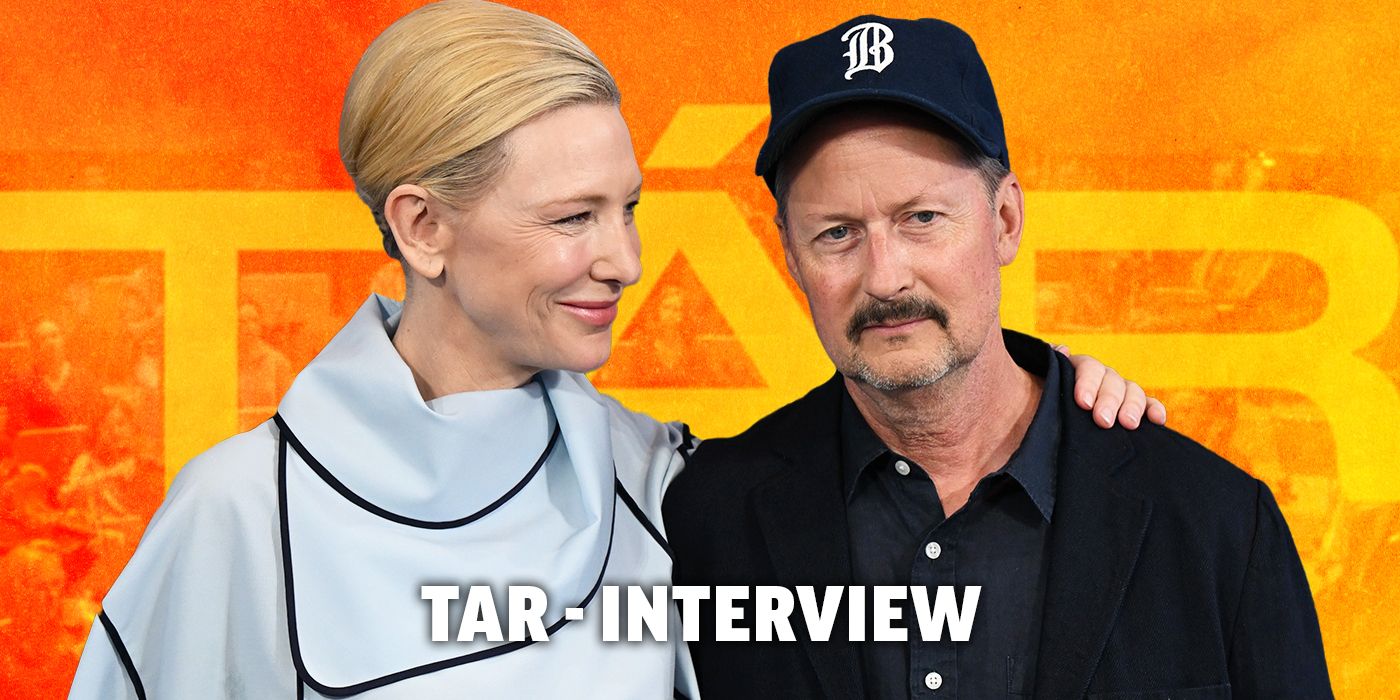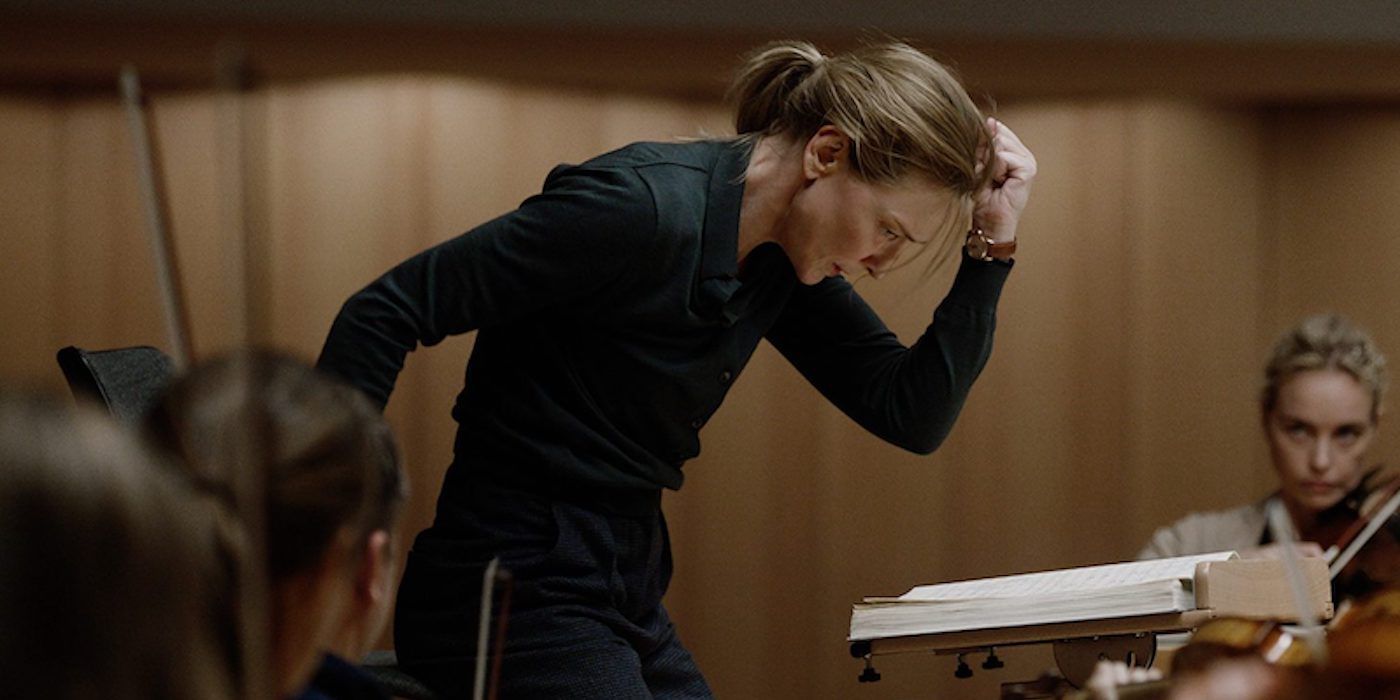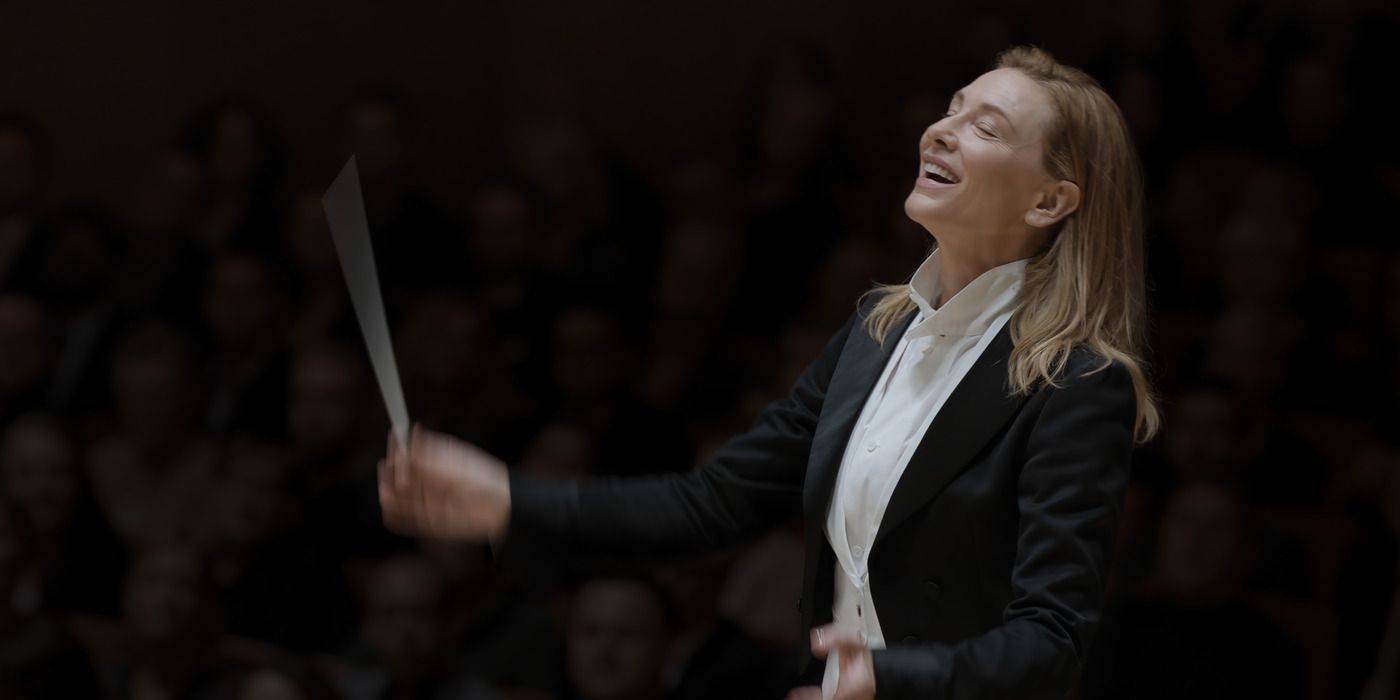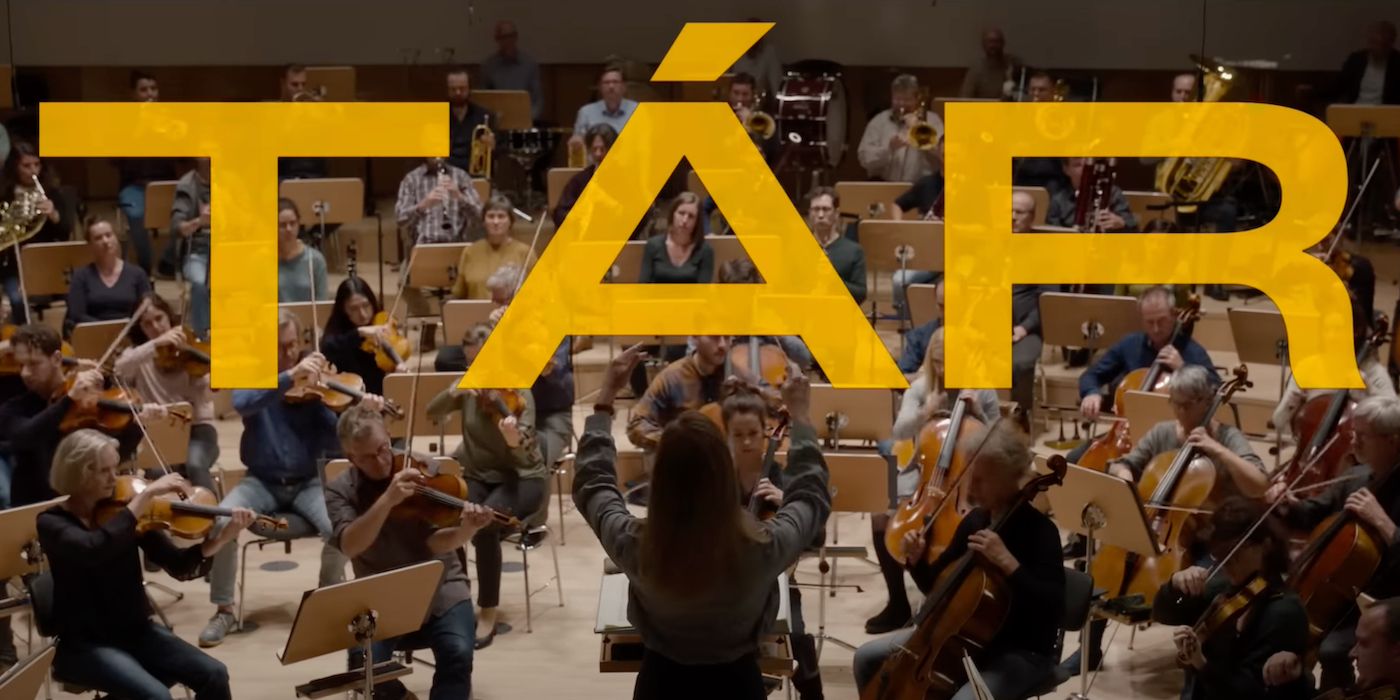If you want to see one of the finest movies of the year and a career best performance from Cate Blanchett, you need to race to your local movie theater and see writer-director Todd Field’s TÁR. I cannot emphasize enough how blown away I was by Blanchett’s incredible performance and Field’s brilliant script. Not only did Field shine a light on what happens behind the scenes of orchestras around the world, but he crafted a modern tale about the #MeToo movement, and the examination of power in our society.
In the film, Blanchett plays Lydia Tár, who is at the height of her career and the conductor of a major German orchestra. As she is preparing for a live performance of Mahler’s Fifth Symphony and a book launch, her life begins to unravel due to some of her previous decisions. For more on what the film is about, you can read Brian’s glowing review.
Shortly after seeing the film, I got to speak with Cate Blanchett and Todd Field. They talked about filming the incredible oner where Blanchett is teaching a group of students and why Field wanted to film it all in one take, why it was such a challenge shot to get right, how Field wrote the script for Blanchett without telling her, and what someone should watch if they’ve never seen their work.
Watch what they had to say in the player above, or you can read our conversation below. TÁR is now playing in select theaters and opening in more cities this weekend.
COLLIDER: Listen, I want to start with, congrats on making one of the best films I've seen this year. I love this movie, and I have a lot of questions, but I like throwing a curve ball to start things off. If someone is actually never seen anything that either of you have done before, what is the first thing you want them watching and why?
CATE BLANCHETT: I've had three experiences, no, four experiences, I think, TÁR being top of the list. And then I played Blanch DuBois onstage, directed by Liv Ullmann, which was life-changing. Most of them have been on stage actually, and working with the other Todd Field on playing Bob Dylan. These asks that directors make of you, that you can't even imagine what the experience is going to be. Not just because we're here talking about it, but I would have to say TÁR, because my experience before I was even involved in the project of reading the script is I'd never read anything like it. And I think the film that Todd has made is unlike any other film that I've ever seen. What about you?
TODD FIELD: Wow.
BLANCHETT: In the third grade…
FIELD: In eighth grade, I had this video project. No, I feel the same. I haven't had this kind of collaboration. And this has been unlike anything I've ever been involved in before. I would say TÁR . I've never gone back and looked at any films that I've ever worked on in any capacity. It's been a very long time since I've made a film, but even so, I can tell you with a straight face, it would be TÁR.
Again, I can't say enough positive things. Todd, I read that you were writing this with Cate in mind. At what point did you find out, Cate, that he was writing this? And what would've honestly happened had she said no?
BLANCHETT: Just right now. Fortunately, I didn't know that when we were working together. There was so much to do and the conversation was so rich, that it was literally like the gate opened, and we just went for it. Yeah, so we didn't ... Just right now.
You're being sincere?
BLANCHETT: No, today. I mean, today. Yeah.
FIELD: Yes, I wrote it. I didn't write it with Cate in mind. I wrote it for Cate. I didn't tell her I was writing it. Cate and I had met about 10 years ago to talk about a script that I had been working on with Joan Dijon for a while. That film didn't come together. I'd never thought of an actor before writing, but I knew based on that meeting outside of Cate's work as an artist, just out of that meeting, that conversation, that was the kind of collaboration I was really desperate to have.
And that's why in answer to your question, "What would you have people look at?" This was an extraordinary conversation to have with an artist like Cate. And it was a conversation that had to do about us asking questions. We are each asking questions about very, very similar things and trying to figure out if there was an intelligent way to answer those questions. So yeah, that's a long digress way of saying, yes, I wrote it for Cate. And had she not done it, yes, I wouldn't have made the film.
There are so many scenes in this movie that I would like to dissect with the two of you because they're so striking and incredible. But one sequence in particular was earlier in the film is where you are teaching the students. It’s a long oner, where the camera-
BLANCHETT: Oh yeah.
Where the camera is following your performance, going to different positions. You are delivering an incredible amount of dialogue that is very complicated. Can you both talk a little bit about pulling off that scene? Because as I was watching it, I just couldn't believe what I was seeing on screen.
FIELD: Well, hopefully you're not aware that it's a oner. I mean, there's all kinds of oners. There's oners that are really bravura, like Goodfellas going into the Copa, or the beginning of Boogie Nights, or Rope, or Touch of Evil kind of thing.
BLANCHETT: Or The Player.
FIELD: Or The Player. And then there's ones like at the beginning of Code Unknown, where you're about halfway through until you realize it's a oner. And it wasn't that it had to be a oner. It was important that we always feel like we're with her and that we feel like we're with her at every possible moment. And the idea of what needs to be accomplished or what one would hope would be accomplished in the execution of that scene, the idea of giving anyone any control other than Cate seemed antithetical to what that scene was about.
There was a certain point where I said to Florian Hoffmeister, our cinematographer, I said... We were out scouting last summer, and I said, "It has to be a oner, but I don't know how to do it. Technically, it's almost impossible. We can't do it with a Steadicam, we can't do it with a crane. We can't do it with all these things." So we started to talk about a way that we might be able to do it. But the first thing was I had to convince Cate that this was a good idea. I remember we pulled over on the side of the road, and I called her up.
BLANCHETT: Whenever Todd delivers bad news, he always says, "Cate, here's the thing." So whenever he starts with, "Here's the thing," I'll go, "Okay, what is it?"
FIELD: Well, no, but Cate said immediately, but she didn't even... Not even one second, I said, "We have to do it as oner." And Cate said," Well, you can't do it as oner." I said, "Why?" She says, "Well, because the leg, she has to see the leg." And I said, "No, no, no. We can figure out how to get to the leg." So that was it. We rehearsed. Cate and I went in and alone, and we blocked that scene together. And then we brought the crew in, and we blocked it for the crew and adjusted. Then we shot it for two full days.
BLANCHETT: Because we'd get through it. I think the first time we did it, we got all the way through, and then something happened with the mechanics of the camera. It was no one's fault, and it just flipped off. So we couldn't use-
FIELD: Yeah, it may have been someone's fault, but-
BLANCHETT: But no.
FIELD: Yeah, the very first take actually was perfect until the very last moment. And then we spent sort of two days sort of chasing that. Again, it was important that she's in control of that entire scene. The beginning of the script for me was that scene. That's the first scene that I wrote. And I wrote it and rewrote it for probably four months.
I'm always haunted by that question when somebody says to you, "If you could go back and talk to your younger self, what would you say?" And for me, that's what that scene is about. It's about this character who's at a very particular point in her life where she's done a lot of experimenting and she's pushed the boundaries, and she's at a very kind of conservative place at this point in her life. But if she were talking to her 24-year-old self, her 25-year-old self, what would she say? And very much, this character of Max could have been Lydia, "Thereby the grace of God go I at 25," when she graduated from Harvard, wanting to do the same thing that she's telling Max not to do, doing experimental music, doing a tonal music, maybe poo-pooing the sort of German-Austro canon. But that's not where she is now.
There's a real reckoning with this character. She makes four valiant attempts to try to bring him on side, and then she can't keep her powder dry anymore. And that's a real failure for her. She sees that as a real defeat, I think. I mean, you probably have other feelings about that, but-
BLANCHETT: No. Yeah.
Oh, I got to stop. I was going to see if you had anything else, but I just want to thank you so much for-
BLANCHETT: I have nothing. I have nothing.
FIELD: Yeah, I'm so sorry. It was a very long-
BLANCHETT: No, no, no, no.
FIELD: Yeah,
No, no. Just again, I just want to say thank you so much for making the movie. It's incredible. I wish you guys nothing but the best.
FIELD: Thank you.
BLANCHETT: Thank you very much. I appreciate it.
TÁR is now playing in theaters.




